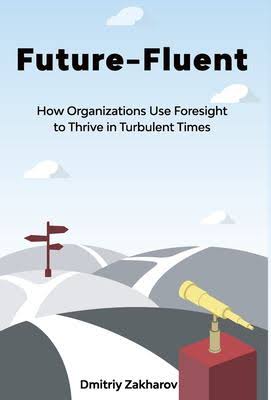“Our reality depends on what our biology is up to.”–David Eagleman
“What a life in science really teaches you is the vastness of our ignorance.”–David Eagleman
Note: Regular followers of this blog will have noted that I avoid discussions of religion and faith issues herein. There is a reason for this: I am not interested in discussing them. Anyway, if you have read many of my posts you will likely have figured out where I stand on this by now. However, I am making an exception with this post for a specific reason. Possiblianism is to faith, what these Millennium Conjectures are to physics and metaphysics. I am speculating on what might be the answers to unknown questions, based on what we do know about physics and cosmology–all the while keeping an open mind and not drawing any absolute conclusions.
In between theism and atheism lies a vast limbo generally referred to as agnosticism. While the dictionary definition of agnostic is someone who believes the answer to the question of god’s existence and/or the meaning of life is unknowable, the term is often used more broadly. The agnostic may be undecided. The agnostic may not care and consider the question irrelevant. Some point to such individuals and say they are just too wishy-washy to make up their minds. The common thread among all of these, though, is that the agnostic sees no firm proof either way. Along comes Possibilianism, which might be seen as a sort of proactive form of agnosticism.
The term Possibilianism was coined and defined by neuro-scientist and author David Eagleman, in discussion of his book, Sum: 40 Tales from the Afterlife. When asked by an NPR interviewer whether he was a theist or atheist, Eagleman replied that he considers himself Possiblian. “I’m open to…ideas that we don’t have any way of testing right now,” he said. That is a good way of explaining what my Millennium Conjectures are as well.
.
I’ve read Sum, which is a compilation of 40 possible scenarios for what happens when we die; none of these scenarios are typical religious views of heaven or hell,
or atheist views of eternal nothingness. Many of the scenarios seem over-the-top bizarre. Except when you stop to think about it. None of them are really any more preposterous than what most religions already believe. But all of them do have rather strong moral or philosophical points to them; they are all excellent fodder for contemplation. At any rate, it was a best seller that received rave reviews from the likes of The Wall Street Journal, The Observer and The Los Angeles Times.
Below is a short You Tube discussion of the concept by Eagleman. There are much longer ones available if you have the time and inclination. As for my ever getting to conjecture #5, I think I’m finally done with the preliminaries, so, yes, it’s a possibility!







There is an intriguing point to that
…which it appears you have left open to possibilities? 😉
A CRPG NPC once said (says it every time I start that quest): it is the sign of a fool that he disregards everything outside his experience as impossibility
Loved your post, especially the quote about ignorance. Unfortunately most scientists and deists have not read (or agree) with your article. Their ignorance shows. Here’s a quip for one of your articles, if you so choose: As between atheism and theism, the truth is nowhere to be found.
I would guess that many, though not necessarily a majority of scientists would agree and that nobody vested in any traditional religion would agree. Perhaps some deists would agree, but they would be coming from a rather non-traditional point of view.
Will everybody who believes in telekinesis please raise my hand?
The comments about unknowability seem to relate at least as much to political views as to religious ones. It’s hard to know who’s right and to what extent about so complex a matter as, say, the effect of the Affordable Health Care Act on overall medical costs in our economy, and the effects on a given individual. (Presumably there are both winners and losers among both people and corporations.) Or whether there’s wisdom in trying to engage one’s enemies rather than simply threaten them with all you’ve got (ie. Obama and Iran.) Or whether the Reagan revolution and increasing concentration of wealth at the top is a good thing or bad.
We have opinions on these questions but no one can really prove much, all they can do is add more facts and analysis and make predictions. I actually find it easier at this point in my life to nail down my religious and spiritual beliefs than my political ones!
There are any number of things I’d like to nail down at this stage of my life. Car keys…glasses…cell phone…I can’t keep track of any of them! 😉
Absolutely. The fact that I can’t see it doesn’t prove that it isn’t there. On the other hand, if I can’t see it, why should I care if it’s there or not?
What’s the difference between ignorance and apathy?
I don’t know and I don’t care.
LOL. So the fact that you can’t see that land mine you are about to step on doesn’t concern you in the least?
Don’t be silly. There’s no land mi….
😀
The thing about the unknowing, the agnosticism, is that it encompasses theism as well as atheism. For members in either of those dual worlds the agnostic is looked upon as someone belonging to the other camp. However, not knowing is most often the next level, not the previous one.
There is every possibility that a god exists. Only, the options presented by the ”opposition” so far don”t come up to scratch.
This problem is compounded when one realizes that Israel Finkelstein has demonstrated beyond reasonable doubt that the Pentateuch is fiction, so that pretty much counts out Yahweh…and Jesus for that matter.
Whoa is me, a poor sinner! Now who the hell am I going to pray to?
I’m hedging my bets with the FSM at this stage of the game. 🙂
Good read, Mark.
I’m shying away from pasta until I lose a few pounds. Forgive me please, oh mighty FSM! 😛
Mark, one of my favorite Kurt Vonnegut books–The Sirens of Titan–includes the “First Church of God the Utterly Indifferent” … which may (or may not) fall into the realm of possibilities
I can’t recall if I ever read that one. That does sound utterly Vonnegut, though.